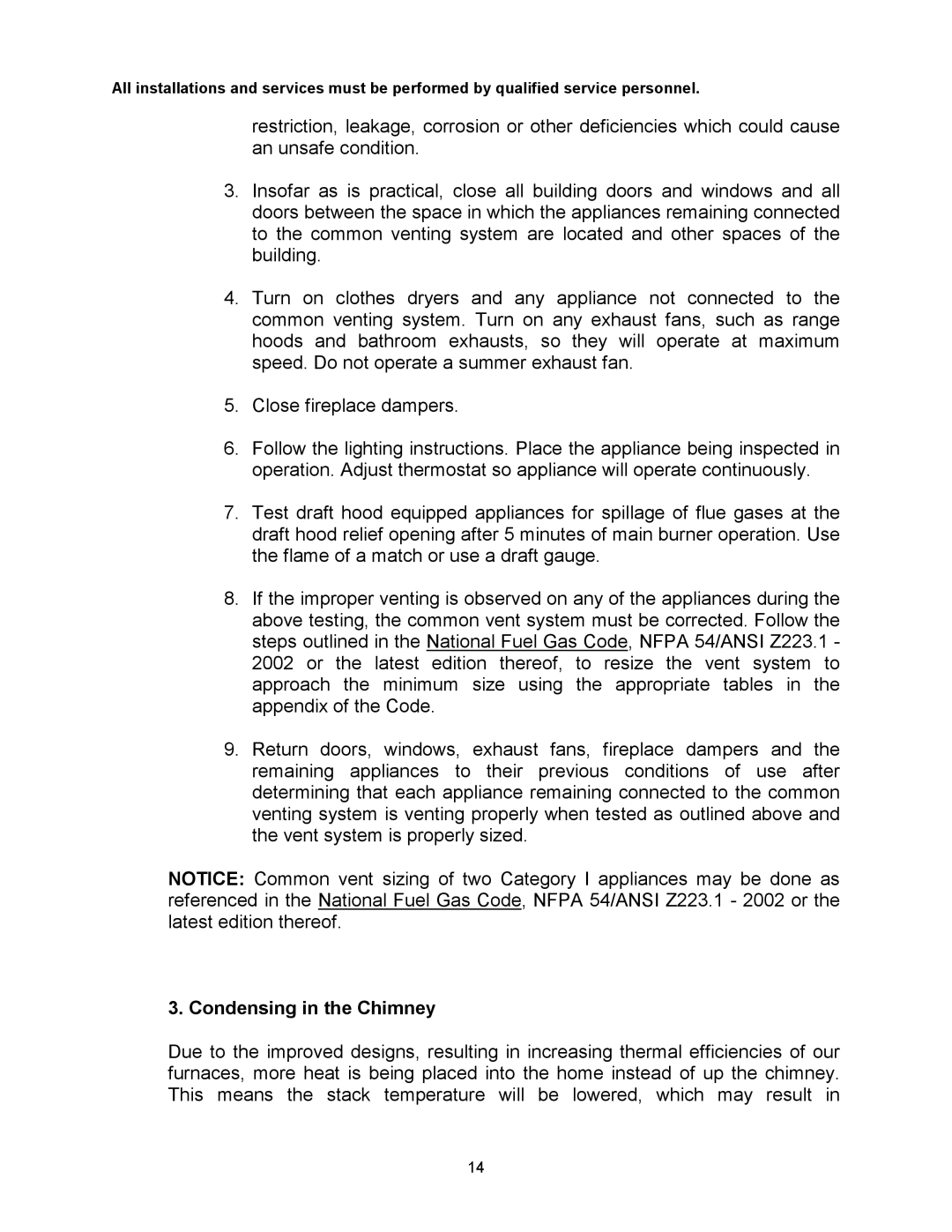All installations and services must be performed by qualified service personnel.
restriction, leakage, corrosion or other deficiencies which could cause an unsafe condition.
3.Insofar as is practical, close all building doors and windows and all doors between the space in which the appliances remaining connected to the common venting system are located and other spaces of the building.
4.Turn on clothes dryers and any appliance not connected to the common venting system. Turn on any exhaust fans, such as range hoods and bathroom exhausts, so they will operate at maximum speed. Do not operate a summer exhaust fan.
5.Close fireplace dampers.
6.Follow the lighting instructions. Place the appliance being inspected in operation. Adjust thermostat so appliance will operate continuously.
7.Test draft hood equipped appliances for spillage of flue gases at the draft hood relief opening after 5 minutes of main burner operation. Use the flame of a match or use a draft gauge.
8.If the improper venting is observed on any of the appliances during the above testing, the common vent system must be corrected. Follow the steps outlined in the National Fuel Gas Code, NFPA 54/ANSI Z223.1 - 2002 or the latest edition thereof, to resize the vent system to approach the minimum size using the appropriate tables in the appendix of the Code.
9.Return doors, windows, exhaust fans, fireplace dampers and the remaining appliances to their previous conditions of use after determining that each appliance remaining connected to the common venting system is venting properly when tested as outlined above and the vent system is properly sized.
NOTICE: Common vent sizing of two Category I appliances may be done as referenced in the National Fuel Gas Code, NFPA 54/ANSI Z223.1 - 2002 or the latest edition thereof.
3. Condensing in the Chimney
Due to the improved designs, resulting in increasing thermal efficiencies of our furnaces, more heat is being placed into the home instead of up the chimney. This means the stack temperature will be lowered, which may result in
14
